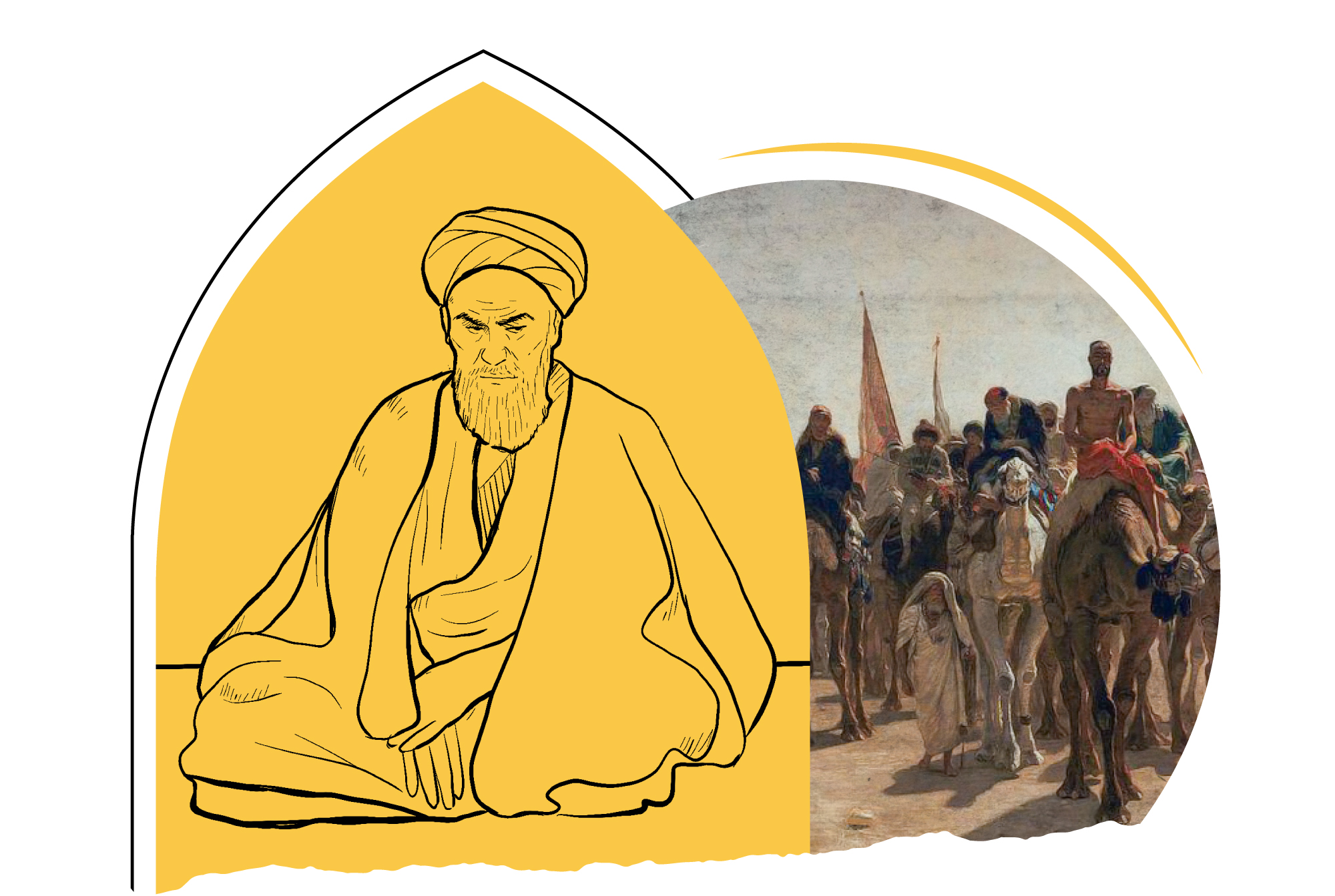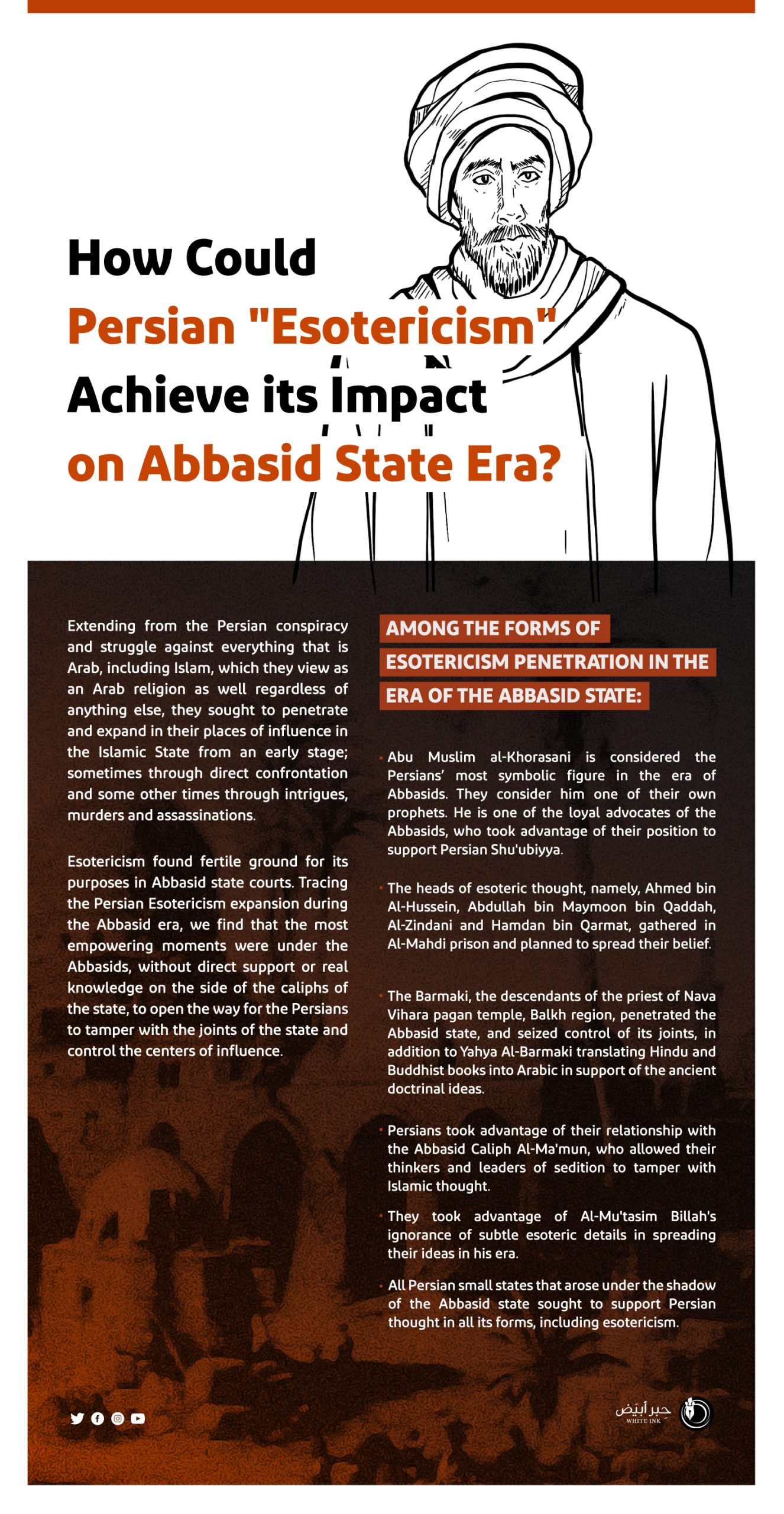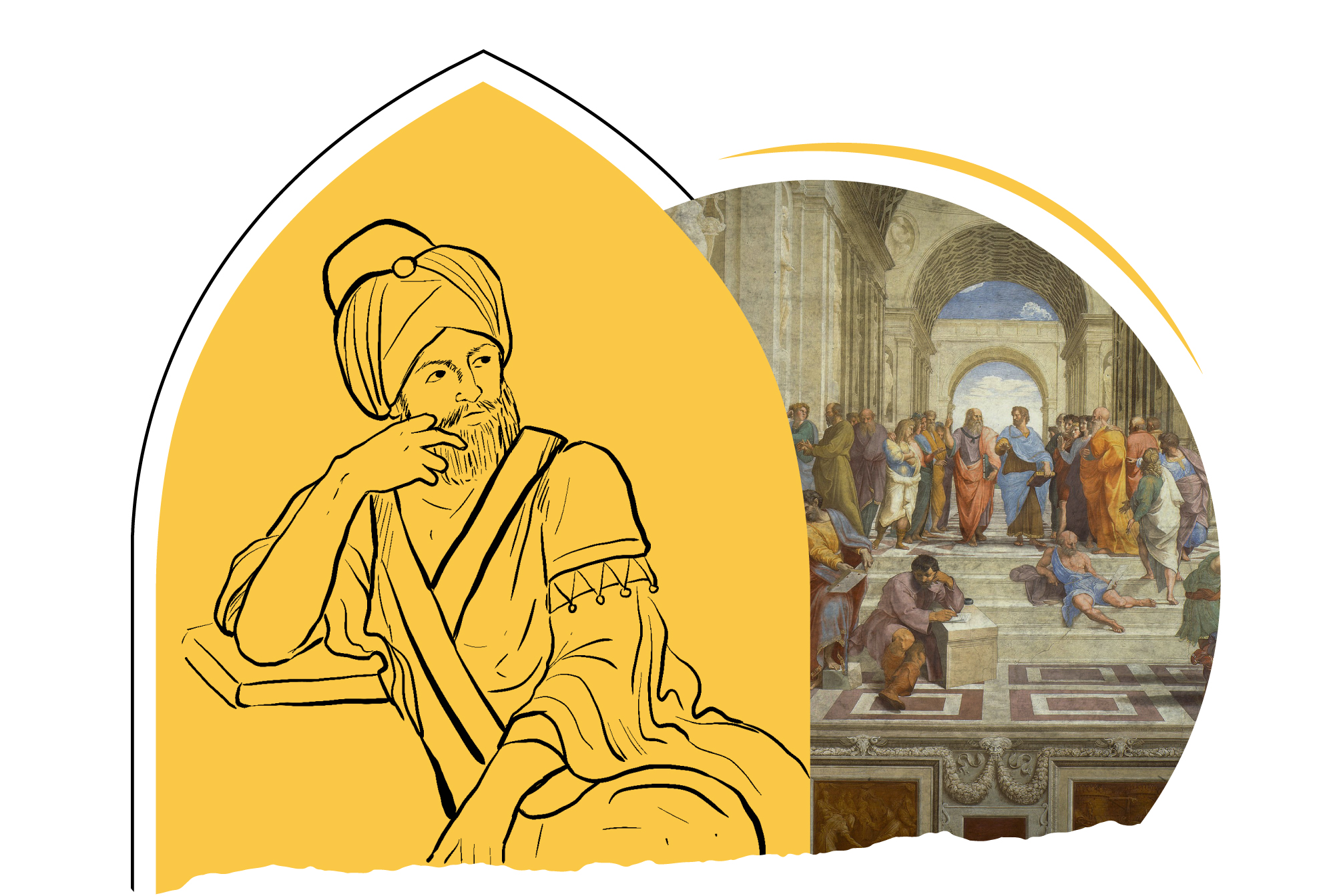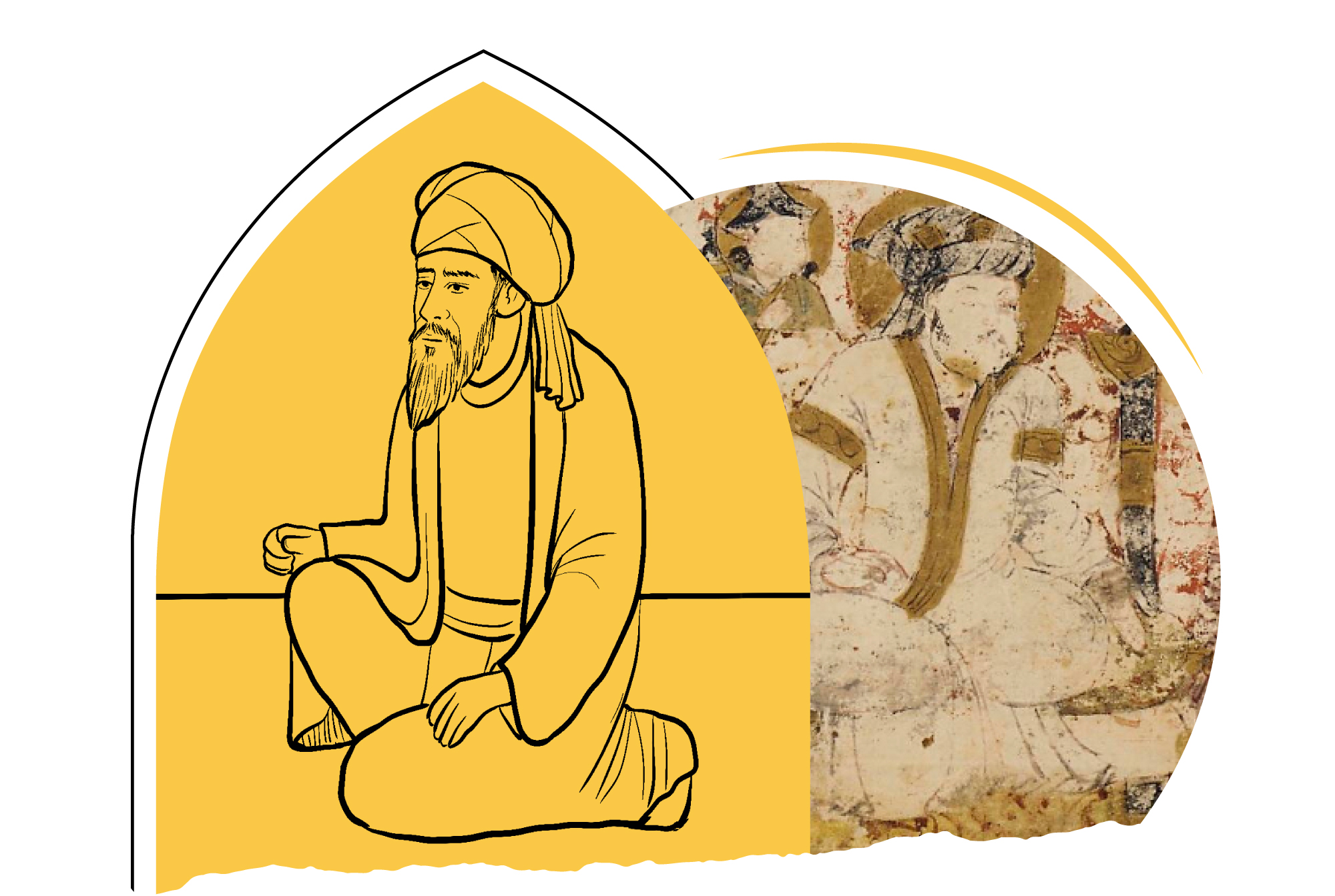
From Ibn Saba Sedition Up to Date
Persians Historical Alliance with the Enemies of the Arabs
No observer of history or reader of literature can ignore the hatred the Persians feel towards the Arabs, as they spared no effort and seized every opportunity to reveal what they harbored in their hearts. Persians have allied, from an early stage, with every party that struggled to harm the Arabs. They started that policy in Rashidun era and it was translated by the assassination of Rashidun Caliph Umar ibn al-Khattab, may Allah be pleased therewith, at the hands of the Persian Abu Lulu’a, in that famous incident. Some sources and references confirm that since then the Persians formed alliances against the Islamic state, which is the period in which the Persians, and their secret allies, did not dare to hold direct confrontation.
Everyone who was agitated by the emerging state in the era of Rashidun did not dare to retaliate by open war, so they resorted to secret alliances and to plots and conspiracies, in order to drive a wedge and strike the Arabs by each other. This resulted in the incident of Abdullah bin Saba or Ibn Al-Sawda’, who pretended to be a Muslim during the time of Caliph Uthman ibn Affan, may Allah be pleased therewith, only out of deceit and cunning. In reality, he was one of the strongest instigators against Uthman until sedition broke out among Muslims. He succeeded through that policy to attract to him those who claimed that Uthman’s actions deviated from the approach of his predecessors (Abu Bakr and Omar). The role of Ibn Saba was to disseminate those matters in a way that attracted people and provoked their souls against Uthman. In this atmosphere, heated with sedation, Ibn Saba, disguised in the cloak of Islam, was able to inspire them to blame or criticize Uthman.
In addition to this political sedition against Uthman, a more dangerous sedition was hatched in an attempt to destroy Islam principles from within. Hence, esoteric approaches were established to interpret Sharia in a way that leads to its abolition and replacement with an odd mixture of alleged wisdom, combining the myths of the Persians, paganism of the Greeks and other religious beliefs.
As for the Persians, they believed in the sacred divine right of the Sasanian Persian family and that it was the first in sovereignty, which was reflected in and later impacted the thought of some esoteric sects. Several evidences also confirm that the idea of esotericism was Persian-sponsored right from its inception, with a view to call for extremist imams. That was also promoted by Ibn Saba’, who was active in moving from one country to another, between Hijaz, Basra and Kufa, then the Levant, till he settled in Egypt, where he found listening ears to emit his poison against Caliph Uthman and to exaggerate in praising Ali, may Allah be pleased therewith. The intention of that activity was to spread his ideas which he fought for. So, whenever he was expelled from one country, he moved to another actively, where he found support and financing to disseminate his ideas, until he sought to complete his plan to sow disunity and ensure Muslims stultification and manipulation of their ideas.
Orientalist Israel Fredlander addressed the role of Persians and their alliance with the hostile Jews, saying that: “The Jews came after them directly,” as the Persians, along with the hostility of some Jews, formed a spearhead to strike the Arab Muslims from within and they succeeded in achieving a lot of strife and disunity, giving room to dozens of esoteric sects to emerged, e.g., Sabaeans, Kaysanites, Jarudiyyah, Nusayriyyah, Ishaqiyyah, Qarmatians, etc.
According to orientalist Israel Fredlander, Persians are classified as the most hostile to the Arabs.

Al-Shahristani describes them saying that “Ancient esotericists mixed their words with some philosophers’ words and compiled their books on that basis”. The origins of esotericism science, as claimed by many of these sects, go back to ancient civilizations and philosophies that believed in priests and magicians and adopted interpretation, embodiment, solutions, transmigration of souls and lying to the Messenger (PBUH) as a way to resurrect such false beliefs. Some sects continued adopting that approach despite the distance of time. Perhaps, in our modern era, we have the Khomeinist movement, which philosophy was based, in entirety and in detail, on a deviant reading that has nothing to do with Islam. Khomeinist movement destroys, distorts and disfigures Islam major characters and chief founders, deliberately corrupting the creed, blurring the features of true Islam and distorts its noble aims, under the slogan of fanaticism towards imams and for the love of them. They declared concepts that alienate them from Islam; such as their claim that Qur’an is missing parts and that it was altered, in addition to talking bad openly, violation of the consensus and their past and present strategic alliances with the enemies of Islam. Everybody is aware of the Persian alliance with whoever is hostile to the Arabs. This is along with other forms of conspiracy against the reality of Islam and Muslims, empowering their enemies of their countries and their economic, cultural and religious capabilities, so as to export their deviant revolution to the Arab states.


- Ahmed Maghrabi, Role of the Jews in the Esoteric Sects, an unpublished master’s thesis, Al-Madinah Al-Munawwarah: The Islamic University (1981 AD).
- Khaled Al-Qot, Esoteric Interpretation and its Impact on the Creed of Esoteric Doctrines, Taibah University Journal of Arts and Humanities, Al-Madinah Al-Munawwarah, Year (2), p.4 (1435 AH).
- Firas Al-Sawah, Encyclopedia of the History of Religions, translated by: Abdul Razzaq Al-Ali (Beijing: Al-Takween, 2016 AD).
- Muhammad al-Shahristani, Al-Milal wa’l-Nihal, edited by: Mohammad Sayed Kilani (Beirut: Dar al-Ma’rifah, 1982 AD).


Historical Roots and Development
Esotericism Sought to Distort Islam and its Ideology By Spreading Ancient Persian Beliefs
No sooner had Islam spread and made its impact, especially in Persia and Anatolia, than it was afflicted with sects that tried to break its rank and penetrate it from within. Islam, which grew strong, solid and invincible, can no longer be stopped except by creating strife and spreading false beliefs within it. Esotericism was among those beliefs that the enemies of the Arab nation sought to plant among the Arabs.
Esotericism is one of the most ambiguous beliefs among the sects that pretend to affiliate with Islam. It is also a term applied to other sects that are completely outside the denomination of Islam, such as the Persian Mazdaqiyyah. Therefore, several doubts raised and prompted linking between those beliefs and the sects; i.e., that they stem from the same source and mix in a single bowl.
The word “esotericism” came from the word (esoteric), which means (hidden) or the core of everything. It also means mystical and ambiguous. They were called that name because they claim that Qur’an have implicit meaning known solely to them. About being named as such, Al-Shahristani said that “They adopted that name to reflect their belief that everything has explicit and implicit meanings and that every revelation has an interpretation”.
Muhammad al-Khatib describes the historical origin of the esotericism, saying: “In fact, historians of the sects differ in its origin and source. Some attribute it to the Magi and some others them attribute it to Sabia of Harran. However, such difference disappears when we know that the fundamentals on which esotericism depends, with all its sects and groups, stem from Greek philosophy, which ideas invaded several sects”.
As for its ideas, on which it built its philosophy, they are a mixture of Greek philosophy and Persian religious methods, in addition to Hindu ideas that had a profound impact on esoteric thought and beliefs, finding a nurturing environment in Persia to grow and flourish.
The origins of esotericism have been disputed, mainly for two key reasons: the ambiguity of the esoteric matter in the many phases of their history, causing each historian to account for it according to the information attained thereby, and because the esoteric doctrine itself accepts such differences and does not confirm or deny them.
The truth that we must realize is that, whatever the reasons may be, the esoteric call is surrounded with a great deal of ambiguity, especially in terms of its inception, that is in the phase of concealment, or “As-Satr” as they call it. No one specifically knows about that phase or can accurately write about it. Whatever the case may be, esoteric beliefs in general have been derived from ancient beliefs.
However, planning for esotericism establishment, as is likely from historians’ writings, goes back to 200 – 300 AH, i.e., after Islam has been well-established and Magianism has extinguished.
Impact of Philosophy on Esotericism
Greek philosophy is the most influential in esotericism, especially Plato’s illuminating Gnostic philosophy and Pythagoras’ numerical philosophy. It can be said that Abdullah ibn Saba’s system is an “Esoteric Gnostic” system. Historians believe that the extreme “Embodiment Sufism” (Al-Tasawof Al-Holuli) is of an esoteric gnostic nature. Some extremists are classified as Gnostics.
There is still a religious sect in Iraq and Iran called the Mandaeans, which is a Gnostic sect. “Mandaean” is the Aramaic word for “Gnosis”, where Mandaean is the knower. Their belief includes purification in running water and complex funeral rites. When a Mandaean dies, the priest performs the necessary rituals for the soul to return to its divine abode, do that the dead may be reunited with the mystical Adam, the “Eternal Man”, the glory or the holy body of God.
Esotericism, as described by the researcher Belil Abdul Karim, is “a phenomenon that spread among Persian sects, in an attempt to destroy Islam from within, by inventing esoteric approaches in interpreting Sharia in a way that leads to its abolition, replacing it with an odd mixture of wisdom that brings together Persian myths, Greek paganism and beliefs of the Jews who had distorted their religion. Hence, esotericism emerged in a deceptive Islamic form, such as the idea of the Muhammadan Light, the infallibility of imams, their miracles, as well as al-Gheeba, al-Raj’a, al-Holoul, al-Tajseem, al-Ta’weel and al-Tashbeeh
Several historians date the first appearance of esotericism to year 92 AH., as mentioned by Al-Suyuti, while some others delayed its appearance to year 205 AH. or year 250 AH. and some believe that the emergence of esotericism in an organizational manner dates back to year 276 AH, when Maimon Al-Qaddah established that thought. Some attributed the emergence of esotericism to Hasan al-Sabah, who is known as the Master or Sheikh of the Mountain, attributing to him the establishment of what is known as the “New Call”, “Eastern Nizari Sect”, “Esotericism” or the “Assassins”, according to the European name.
The relationship between al-Ma’mun and the Persians shall remain one of the defining signs in Islamic history. It was through him that the Persians crossed to the Islamic state and were able to submerge and fragment it. Therefore, some of those who monitored the emergence of esotericism on a regular and wide basis return to the days of al-Ma’mun, specifically at the hands of Hamdan bin Qarmat and Abd Allah bin Maymoon Al-Qaddah. That call spread during the time of Al-Mu’tasim Al-Abbasi and they met in Al-Mahdi’s prison. They were four men who plotted the entire matter: Ahmed bin Al-Hussein, Abdullah bin Maymoon bin Qaddah, Al-Zindani and Hamdan bin Qarmat.
During the reign of Al-Ma'mun Al-Abbasi, the Persians found a paved way to spread their esotericism.

They were called esoteric because of their claim that “Qur’an and the stories therein have intrinsic meanings much deeper than their extrinsic meanings. They illude only the ignorant and stupid, yet, to the wise and clever, they are clear images, symbols and references to certain facts. Those whose minds are reluctant to delve into the hidden and secret meanings, the internals and the depths, satisfying themselves with the external meaning and hastening to delusion, shall remain under shackles and sins. With “shackles’ they meant legal assignments and ordinances”.
One of the most important doctrines of esotericism is the dropping of legal ordinances, justifying that by saying that: “He who rises to esoteric knowledge is relieved from ordinances and burdens.” They are the persons meant in the Quranic verse “and relieves them of their burden and the shackles which were upon them”. (Al-A’raf, 157).
System of the Call:
Esotericists adopted secret societies that seek to spread the doctrine of Mazdakism permissibility, Magianism, and philosophical atheism. The principle in the esoteric activity is that its advocates claim, through provocation and under the veil of secrecy, that their call can be carried only by a favorite angel or a sent prophet sent, or a person whose heart Allah has tested with faith. Since secrecy is an organizational necessity for esoteric actions, especially in the stages of distortion and recruitment, it is easy for esotericists to turn secret esoteric practices into a religion as well.


- Mohamed al-Khatib, Esoteric Movements in Islamic World: Doctrines and Islam Judgement Thereon, 2nd edition (Amman: Al-Aqsa Library, 1986).
- Ghaleb Awaji, Contemporary Sects Ascribed to Islam and Islam’s Position Thereon, 4th edition (Jeddah: Al-Maktaba Al-Asriya, 2001).
- Firas Al-Sawah, Encyclopedia of the History of Religions, translated by: Abdul Razzaq Al-Ali (Damascus: Dar Al-Takwin, 2016 AD).
- Muhammad al-Shahristani, Al-Milal wa al-Nihl, edited by: Muhammad Sayed Kilani (Beirut: Dar al-Ma’rifah, 1982).

Interpreted Qur'an to Permit Shedding Human Blood
Esoteric Penetration of the Arab Islamic State with the Barmakids’ Penetration in Abbasid Court
Some seditionaries struggled to maneuver in order to forcibly re-interpret the clear meanings and indicative structures of Qur’anic texts, which are already easy to understand. Those who were overcome by the tendency of race strived to insult the supremacy of the message of Islam that the Arabs have carried and communicated.
The principle of piety as a criterion for ascending values’ ranks, as laid down by Islam, has not satisfied the Persian race who believed in the supremacy of the Aryan race (as they claim), where the victory of ethnicity is an existential issue that necessitates declaring war on those who subjugated their sovereignty and enabled Islam and Arabism in all states.
In this context, esotericism had a unique interpretation of the Holy Qur’an, saying that “Qur’an and the stories therein have intrinsic meanings much deeper than their extrinsic meanings. Those whose minds are reluctant to delve into the hidden and secret meanings, the internals and the depths, satisfying themselves with the external meaning and hastening to delusion, shall remain under shackles and sins”. This malicious proposition is insulting to Allah Almighty and a veiled accusation that He entrusts people with what they cannot bear by sending them a book which explicit meanings are delusive and its implicit meaning are difficult to understand, except by deducing its esoteric concepts. They interpreted the clear meanings improperly to come up with a new religion and a far-fetched purpose, with the aim of stabbing Islam from within and exploit it to settle ethnic scores and racist strife.
Perhaps the wretched status and the miserable fate have prompted the beholders of that satanic plant to claim that ordinance was lifted for them after they had gained “exaltation”. They claimed that “whoever rises to esoteric knowledge is relaxed from ordinance and its burdens. They are the persons meant in the Quranic verse “and relieves them of their burden and the shackles which were upon them”. If there is a decisiveness in their esoteric doctrines and sects, then there is a disagreement about the historical period in which this malicious plant penetrated the Islamic body upon which they began to strengthen their corrupt faith. Some said that the Barmakids were the first to “practically” pave the way for that religious and cultural penetration. Some fingers point to Yahya al-Barmaki, Harun al-Rashid state’s minister and person-in-chief, as he is affiliated with “the grandson of one of the priests of the pagan Nava Vihara temple in the Balkh region in Afghanistan…”. During his work inside the caliphate palace, “Yahya al-Barmaki began a campaign of translating Hindu and Buddhist books From Sanskrit to Arabic, thus began the esoteric cultural and religious penetration of Islam”.
Those who launched that claim believed that the Barmakids penetrated the Arab body and claimed Islam outwardly. They were able to control the joints of the Abbasid state after overthrowing the Umayyad state and assassinated its Emir, Marwan bin Muhammad, who is considered the first Arab leader to defeat the Turkic Khazar Empire.
The esotericism’s unleashing the shovel of interpretation was intended to politicize Islam for the purposes of race and politics, so they wooed the public by “legitimizing” everything they love and desire. This marked the outset of attraction and recruitment. This is the tactic adopted by the communists when they advocated the need to ride on the demands of the masses and to work to penetrate and direct them to overthrow the imperialist regimes.
Esoteric movement has striven to win over the public by presenting interpretations that suit their whims.

In this regard, we find the author of Al-Farq bayn al-Firaq “The Difference Between Groups” pointing out this tactic by referring to one of their books, where he says: “Evidence to that is their claim that the world is old and deny all the messengers and laws due to their tendency to authorize what nature tends to. As I read in their book translated as “Politics, the Definite Convey and the Greatest Law”, which is the message of Obaidullah bin Al-Hussein Al-Qayrawani, in which he advised him saying: Call the people by approaching them with what they tend to and delude every one of them to think that you are one of them. Those whom you perceive as sensible, uncover thereto, and if you won a philosopher, keep him, for philosophers are one of our pillars as with them we refute the laws of the prophets and call for the world’s oldness”.
Ijtihad has rules and controls, which renders it a self-contained science, immune from the motives of those with desires, whether it is related to the esotericists who have lifted ordinance therefrom or the extremists and the misguided who went to extremes in the interpretation of the text, thus intersecting with the unruly esotericists in the permissibility of Muslims’ money, blood and honor, through odd interpretations that authorize rebellion against the rulers, immigrating ordinary Muslims and declaring them as disbelievers.


- Abu Hamid Al-Ghazali, Esotericism Scandals (Kuwait: Dar Al-Kutub Al-Thaqafia, n.d).
- Abdul Qaher Al-Baghdadi, Al-Farq bayn al-Firaq “The Difference Between Groups” (Cairo: Ibn Sina Library, 1988).
- Abd al-Wahhāb ʻAzzām, Relationships Between Arabs and Persians and their Literature in Pre-Islamic Era and in Islam (Cairo: Hindawi Foundation, 2013).
- Mohamed al-Khatib, Esoteric Movements in Islamic World (Amman: (n.p.), 1986).
- Mohamed Al-Yamani, Revealing the Mysteries of Esotericism and Stories of the Qarmatians, their Doctrine and Belief, edited and prefaced by Mhamed al-Khosht (Riyadh: (n.p), (n.d))





